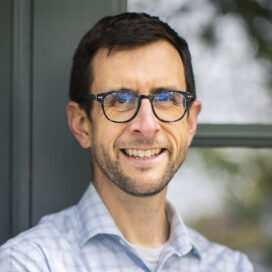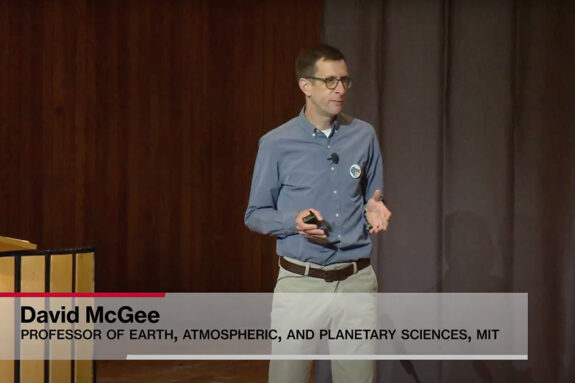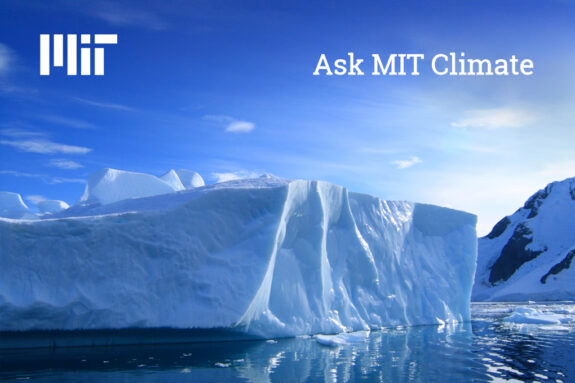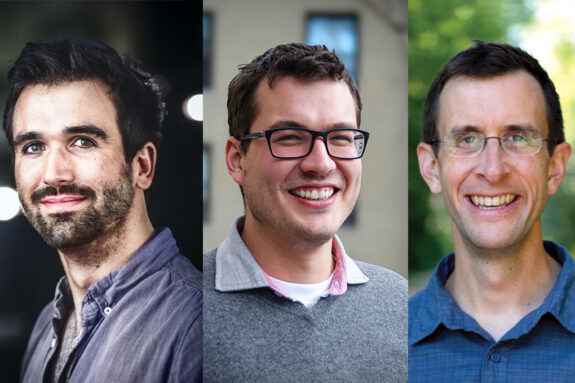
David McGee
Associate Department Head for Diversity, Equity, and Inclusion
Director, Terrascope First-Year Learning Community
MacVicar Faculty Fellow
Professor of Earth and Planetary Sciences
Assistants:
Specialist in isotope geochemistry and geochronology to reconstruct Earth’s climate history and improve future climate projections.
Research Interests
I seek to understand how Earth’s climate evolves over time. Through a range of collaborative projects, my group examines the ways that rainfall patterns, winds, permafrost, and other parts of the Earth system have responded to natural climate changes in the past, and we use these records of past changes to benchmark the models and theories used to project the future.
To reconstruct the history of Earth’s climate, we look for geochemical evidence of past conditions preserved in stalagmites, lake deposits, and deep-sea sediments through careful field observations, precise dating using uranium and its daughter isotopes, geochemical data, and comparisons with climate model outputs and modern climate data.
My current and past work studying paleoclimate has explored the history of the Sahara Desert, the rise and fall of large lakes in the western U.S., shifts in the tropical rainbelt, and changes in high-latitude temperatures and permafrost during Earth’s past warm intervals.
Topics I investigate:
- The response of tropical rainfall to past climate changes
- Dust as a tracer of past winds
- Water availability in drylands
- Permafrost stability in past warm climates
Biographic Sketch
David McGee joined the EAPS faculty in 2012 and currently serves as the Associate Department Head for Diversity, Equity, and Inclusion. He has also led Terrascope, an MIT first-year learning community, since 2015, engaging an average 50 first-year students each year in exploring environmental challenges through project-based classes. McGee holds a BA in geology from Carleton College, as well as an MA in teaching and environmental education from Chatham College and an MS in Earth and environmental sciences from Tulane University. He went on to earn a PhD from Columbia University in 2009, and was awarded a NOAA Climate and Global Change Postdoctoral Research Fellowship with a joint appointment at the University of Minnesota and the Lamont-Doherty Earth Observatory. Prior to grad school, McGee taught secondary school science for 6 years. At MIT, McGee has earned recognition for his outstanding contributions to teaching and mentorship, including being named a MacVicar Faculty Fellow in 2022, and a 2024 School of Science Teaching Prize for Undergraduate Education. He also serves on numerous committees devoted to issues of environment, climate, and sustainability, including the Environmental Solutions Initiative Faculty Advisory Board, the MIT Sustainability Leadership Steering Committee, and as Co-Chair of the MIT Climate Nucleus Education Working Group.
Key Awards & Honors
- 2024 • MIT School of Science Teaching Prize for Undergraduate Education
- 2022 • MIT MacVicar Faculty Fellow
- 2009 • NOAA Climate and Global Change Postdoctoral Research Fellow
Key Publications
-
Biller-Celander, N., Shakun, J., McGee, D., Wong, C.I., Reyes, A.V., Hardt, B., Tal, I., Ford, D., Lauriol, B., 2021. Increasing Pleistocene permafrost stability and carbon cycle conundrums inferred from Canadian speleothems. Science Advances 7, eabe5799. doi: 10.1126/sciadv.abe5799
-
McGee, D., 2020. Glacial-interglacial precipitation changes. Annual Review of Marine Science 12, 525-557. doi: 10.1146/annurev-marine-010419-010859
-
Skonieczny, C., McGee, D., Winckler, G., Bory, A.., Bradtmiller, L.I., Kinsley, C.W., Polissar, P.J., De Pol-Holz, R., Rossignol, L., Malaizé, B., 2019. Monsoon-driven Saharan dust variability over the last 240,000 years. Science Advances 5, doi: 10.1126/sciadv.aav1887.


